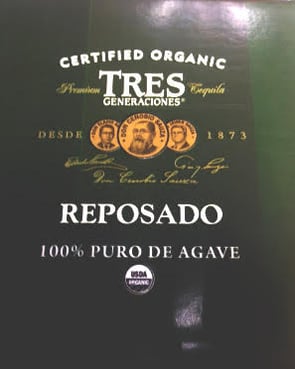
Organic is a labeling term that shows that food or other agricultural product has been produced by approved methods. Before labeling a product, the Organic Regulations, which describe the specific requirements for a product to be considered "organic", must be met and verified by an accredited USDA certifying agent. This certification must be renewed every year.
The required practices promote an ecological balance and the conservation of biodiversity, aiming to maintain or improve the quality of the soil and water by avoiding the use of synthetic fertilizers, sewage sludge, irradiation and genetic engineering.
Knowing the client's requirements
Many factors such as the new "boom" in society in terms of health care and environmental protection, have resulted in consumers becoming increasingly interested in including organic foods in their diet. That is, those that are free of toxic waste, genetic modifications (Transgenic), radiation, pesticides, etc.
In order for a Tequila to be certified organically, it must take into account the entire process and not only the raw material per se, which significantly increases the market value of the product.
There are currently 18 companies from Jalisco who offer organic tequila, a total amount of 31,000 liters of tequila per year. Tequila Sauza offers 2 organic products: 3 Generaciones Reposado and Silver. With this organic distinction, the brands can be sold in other countries taking advantage of their denomination of origin as well as of the boost that consuming of organic products has had.
Identifying the opportunity areas in your process
In order to detect opportunity areas, companies can rely on the Certification Manuals and on the NOP regulations, which explain how the certification process works and also explain the CCOF structure and its quotes, policies and norms included under the NOP of the USDA. They also describe other programs that specify responsibilities and the procedures to be followed for the legal CCOF process, certification costs, certification processes and what needs to be done in order to keep the certification.
We also suggest approaching the CRT to detect opportunity areas. CRT and SAGARPA worked together in order to write a document that will specify the requirements that organic products with a denomination of origin should meet. This document will be published on the Mexican DOF (Official Diary of the Federation).
It is also important to mention that the CRT invested around 118 millions of pesos on an isotope lab by the end of 2016, which seeks to guarantee the Tequila's authenticity.
Organic Certificate Requirements
- To have the Certification of an Agent authorized by USDA in effect.
- Once the company is ready to *export its organic products, it will need an export certificate (issued by the same certifying agent). These documents verify that the product which will be exported meets the required standards of their target market, either by equivalence, commercial agreement or direct compliance. (*Exporting from Mexico).
- Once the company has confirmed that its products can be exported to its destination market and that a shipment has been confirmed for departure, the company must then complete the export certificate application package. It can currently be done via email and the time of issuance is 2-4 days. We suggest this request is sent before the departure of the shipment.
- The certificate is around $ 75 USD per shipment. The batch number or lot is not currently required but we suggest including it anyway.
- The certificate was not required for the export process before January 16 of 2017, but after that day, all exports to the USA must have the certificate.
Follow our blog if you want to know more about ur certifications of about the tequila production process. Find more information on the latter here:
Casa Sauza, a Sustainable Company with a Sense of Belonging.
What is The Gentle Extraction of Agave Sugar?
How to Improve Quality on a Production Line
You can also come and visit Casa Sauza yourself and get to know everything about the production of tequila on-site.
.png?width=50&height=50&name=10.CS-Redondo%20(1).png)
